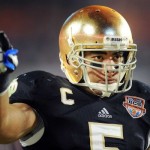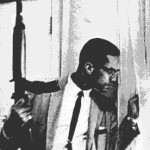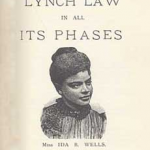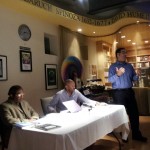
Author: fredericksparks
Rising economic inequality and the “racial entitlement” of the Voting Rights Act
By Frederick Sparks

A Brandeis University study found that the gap in racial wealth has tripled since the Reagan era, The gap between black and white wealth rose from $85,000 in 1984 to $236,500 in 1989, with the median net worth for white households at $265,000 versus $28,500 for black households. The research reveals that the disparity in home ownership is a significant factor, with the homeownership rate for whites being 28% higher than the comparable rate for blacks. The study notes the higher rate of home equity growth for whites is attributable in part to the historical wealth advantages that make it far likely for white homeowners to receive family assistance or inheritance that allow them to both purchase their first homes sooner and make larger down payments and upfront payments which lower interest paid, as well as residential segregation which places a cap on home equity in majority black neighborhoods. The disparities have also been exacerbated by the Great Recession and accompanying meltdown in the housing market.
Against this backdrop the Supreme Court is in the process of considering the constitutionality of provisions of the Voting Rights Act that require states and municipalities with a history of racial discrimination to seek preclearance from the Justice Department or a federal court before making changes to their voting laws. Despite well-known voting problems during the most recent presidential election that appeared to disproportionately impact black voters, the plaintiffs are arguing that these enforcement positions are no longer necessary. And Supreme Court Justice Antonin Scalia called the repeated reauthorization of Section 5 of the voting rights act “a perpetuation of racial entitlement” which creates a situation that would spell political suicide for any poor politician voting against it. Scalia’s comments so shocked fellow Justice Sonia Sotomayor that in the final moments of closing arguments she asked one of the lawyers for the challengers if he agreed with Scalia’s description of “racial entitlement”; the lawyer declined to endorse Scalia’s statement.
Sotomayor also had perhaps the best comment of the day, directed towards attorneys representing Shelby County, Tenn, which is seeking to overturn the enforcement provisions : “Assuming I accept your premise, and there’s some question about that, that some portions of the South have changed, your county pretty much hasn’t,” Sotomayor said of Shelby County, which is 90 percent white. “In the period we’re talking about, it has many more discriminating -- 240 discriminatory voting laws that were blocked by Section 5 objections. … You may be the wrong party bringing this.” Thank you, wise Latina.
Handicappers however place the odds fairly high that Shelby county will prevail, given the 5 “conservative” justices who appear lined up to rule in their favor.
Black Atheist characters revisited
by Frederick Sparks
A few years ago I wrote a post overviewing the (limited) portrayals of black atheist characters in popular television and film. In it, I argued that more numerous portrayals of black nonbelieving characters (particularly in a positive light) would go a long way in normalizing the experience of black nonbelievers, in the same way that I believe increasing portrayals of gay characters in popular culture both reflects and influences growing gay acceptance.
Well, we certainly aren’t there yet, as the Friendly Atheist describes in his post about a recent episode of “Belle”, a sitcom offering on TV One, a black oriented cable network. In the episode, the daughter of the main family brings home a seemingly perfect beau who reveals one “flaw”..he’ s an atheist.
As Hemant points out, the writers pass up the opportunity to challenge the traditional thinking around this issue, instead choosing to easily dispatch of the controversy by having the young woman doubt her beau’s “heart” because he’s a nonbeliever.
Black Skeptics Los Angeles observe Day of Solidarity
By Frederick Sparks

CAAM is located in Exposition Park, part of a complex of museums (including the science museum that now houses the Space Shuttle Endeavor) near the University of Southern California, and began formal operations in 1981 with the mission to “research, collect, preserve and interpret for public enrichment the history, art and culture of African Americans with an emphasis on California and the western United States.” The collections toured by the group included one titled “Go Tell it On the Mountain” , which focused on the role of Christianity in black American life, including a commentary on religious hypocrisy that has apparently solicited negative reactions from some of the museum’s religious patrons. Also of note was an exhibit devoted to the history and art collection of the Golden State Mutual Life Insurance Company, the largest black owned insurance company in the western United States, which was established in the mid 1920s to offer life insurance policies to African Americans otherwise unable to obtain policies.
The group followed the museum visit with lunch at Post and Beam, a welcome addition to an area of South Los Angeles that suffers the distinction of being a “cuisine desert” of mostly fast food restaurants despite being adjacent to one of the largest concentrations of affluent African Americans in the state. A collaboration between former Spago chef and Inglewood native Govind Armstrong and Los Angeles restauranteur Brad Johnson, Post and Beam also features a patio area with a herb and vegetable garden that provides ingredients for the restaurant’s selections.
On Faith, Mante Te’O’s fake girlfriend and the Age of Narrative
by Frederick Sparks

In what has to be one of the oddest stories of the new year, the story of celebrated Notre Dame linebacker Manti Te’O’s triumphant performance against arch rival Michigan after losing his girlfriend to leukemia was revealed to be a hoax. Questions remain as to the true perpetrator and victims.
Te’O and Notre Dame claim that, to the recent surprise of both, the athlete was the victim of an elaborate twitter hoax in which he was fooled into carrying on a year long, online relationship with an internet impersonator claiming to be a female Stanford student battling leukemia. Presumably sources have identified the perpetrator of the online hoax as Ronaiah Tuiasosopo, a fellow athlete and family friend of Te’O’s. The university claims to have investigated the matter and stands by the story of a hoax.
Yet certain facts don’t appear to conform with the notion of Te’O as an until recently unwitting dupe. For one, news outlets reported details of the relationship between the two that implied face to face interactions, specifically their first meeting in 2009 after the Stanford-Notre Dame game. Where did this story come from if the entire relationship happened on line? If it came from Te’O, he lied. If it didn’t, why didn’t he correct it or become suspicious at the time? And Notre Dame also claims to have adequately investigated allegations against a Notre Dame football player for the rape of a young woman who later committed suicide, yet the investigation appears to have been perfunctory. It clearly wouldn’t be the first time a university covered up sexual assault to protect its interests.
Te’O himself also relayed stories of nightly phone calls from the hospital and notification of his girlfriend’s death from a family member that seem incongruent with claims of an online hoax. Friends and relatives of Ronaiah Tuiasosopo, while implicating him, also speculate that Te’O was in on the scheme. The defensive standout collected numerous prestigious college football awards on the way to one of the Heisman competition’s highest finishes for a defensive player. In addition to outstanding play against Notre Dame’s opponents, the poignant story of Teo’O’s victorious play days after losing not only his girlfriend but beloved grandmother (that part is true) enhanced his profile and image, and possibly his projections as an NFL draft pick. The assessment of Te’O’s potential as an NFL defensive player may have slid considerably though after a less than dominating performance in the Irish’s blowout loss to Alabama in the national championship game.
Te’O, a Mormon of Samoan descent, said that his decision to attend Notre Dame over his childhood favorite USC came down to faith. If he were truly an innocent victim, then may his story stand as a cautionary tale and testament to the limitations of knowledge claimed purely on the basis of faith, and that skepticism has day to day application, including confirming that someone you declare on national television to be your girlfriend actually exists.
But if he is complicit, it not only speaks to a personal callousness bordering on pathology, but to a larger obsession with and emphasis on constructing media narrative, in a way that marginalizes the lived experience those narratives are supposed to represent.
These yarns nonetheless can determine outcomes, particularly with a news media complicit through volition or lack of diligence.
See Wag The Dog.
The NRA, the KKK, and the 2nd Amendment’s Black History
by Frederick Sparks


Grabbing a group lunch after our latest Los Angeles Black Skeptics meeting, the conversation inevitably turned to the massacre in Newtown and the related issue of gun laws and gun control. One new member expressed his opposition to more restrictive gun laws, primarily because he felt that any new restrictions would inevitably result in African-Americans having disproportionate lack of access to legal fireams, limiting blacks abilities to defend themselves against racist acts.
My immediate response was to argue the far greater harm from the prevalence of firearms in our society. But hours later I remembered the quote above from Wells-Barnett, the anti-lynching advocate, journalist, and women’s suffrage advocate. Barnett offered this observation in her pamphlet titled Southern Horrors: Lynch Law in All Its Phases, which documented her research on lynching. Barnett felt black families needed to be so armed
…for that protection which the law refuses to give. When the white man who is always the aggressor knows he runs as great a risk of biting the dust every time his Afro-American victim does, he will have greater respect for Afro-American life. The more the Afro-American yields and cringes and begs, the more he has to do so, the more he is insulted, outraged and lynched.
Barnett’s call for lethal black self-defense rested against a back drop of discriminatory laws that deprived black citizens of the cherished 2nd Amendment right to bear arms. Many colonies (and later states) passed laws prohibiting both slaves and freemen from owning firearms, particularly after the failed slave revolt led by Nat Turner. Gun ownership was seen by racist whites as a privilege that would elevate “Negroes” to the status of free whites and as a dangerous threat to white rule.
The National Rifle association supposedly opposed gun laws that restricted African-American gun ownership and in some instances offered support to Black Americans seeking to defend themselves with firearms. In 1958, retired Marine Robert Williams opened a chapter of the NAACP in Monroe, North Carolina. Monroe was also Klan country, and the KKK mounted several vicious assaults agains African-Americans in Monroe. In 1960, Williams applied for and was granted a charter to establish an NRA chapter in Monroe; the association also provided firearms training materials. Mr. Williams and other black NRA members in Monroe subsequently successfully defended themselves with firearms against an attack coordinated between the KKK and the local police.
This history prompted erstwhile civil rights icon Ann Coulter to opine that all blacks should be supporters of the NRA; Coulter also recounted the story of Martin Luther King, Jr being denied a concealed weapons permit. Coulter instructed us that, as with slavery, it was the Republican Party and the NRA that were on the side of black people, not the libs and Dems.
This analysis is of course anachronistic. Whatever the NRA and the Republican Party represented then, their coordinated efforts in the current political arena have hardly served the advancement of black American well being. And the type of white racist violence that poses the greatest threat to black lives today is hardly addressed by the 2nd Amendment. Would the fortunes of Trayvon Martin or Jordan Davis have been better served by more liberal gun laws? If anything, their deaths were facilitated by a gun obsessed, shoot first culture.
Not to mention the fear of all firearms needed to defend hearth and home being taken away is a red herring. For one, guns in the home are almost never used for self-defense, and in fact, a gun in the home increases the chances that one will be shot by an assailant. Also, feckless politicians are barely getting around to proposing laws that would limit the accessibility of assault rifle and high magazine capacity firearms; even if these laws are passed there would still be plenty weaponry available for self-defense.
For better or worse, that Winchester rifle isn’t going anywhere soon.
Lee Atwater breaks down the GOP “Southern Strategy” in 1981
By Frederick Sparks
Jimmy Carter’s grandson, James Carter IV, who brought us the infamous “47%” Mitt Romney video, has uncovered the audio recording of an interview of the famed political consultant Atwater by late political science professor Alexander Lamis. Lamis published the interview without using Atwater’s name in his 1984 book The Two Party South, and later used the quotes again, fully attributed, after Atwater’s death. But conservatives long questioned the validity of Lamis’ article and bashed Lamis’ integrity and objectivity, which upset Lamis’ widow who made the tapes available to Carter.
The recording puts the words previously cited in a larger context, in which Atwater on the one hand argues that the new strategy rests on the assumption of a post-racial South whose electorate (including African Americans) would respond more to the superior neo conservative economic message than to racial politics, yet at the same time Atwater delineates how subtle language couched in economic terms could still blow racial dog whistles tuned to the anti-black sentiment of southern whites:
You start out in 1954 by saying, “Nigger, nigger, nigger.” By 1968 you can’t say “nigger”—that hurts you, backfires. So you say stuff like, uh, forced busing, states’ rights, and all that stuff, and you’re getting so abstract. Now, you’re talking about cutting taxes, and all these things you’re talking about are totally economic things and a byproduct of them is, blacks get hurt worse than whites.… “We want to cut this,” is much more abstract than even the busing thing, uh, and a hell of a lot more abstract than “Nigger, nigger.”
The GOP message has hardly strayed from this formulation, though demographic changes and the phnomenon of Barack Obama has rendered it less effective in the last 2 presidential elections, in terms of ultimate victory. Yet the coded message still resonates with the majority of voters in southern states, at a time when the Supreme Court is prepared to review the constitutionality of provisions of the Voting Rights Act; a review that is justified because presumably the South is beyond all that racial stuff.
Besting them at their own game: Planned Parenthood PACs outperform Rove’s
By Frederick Sparks
And it wasn’t even close. According to the Sunlight Foundation, 97.82% of the expenditures of the Planned Parenthood Action Fund Inc. and 98.58% of the expenditures of Planned Parenthood Votes’ ended in the desired results, in terms of candidates supported and opposed. As a comparison:
The worst performers were the NRA’s super PAC and Karl Rove’s American Crossroads, with 0.81 percent and 1.29 percent respectively.
Sweet irony.
I was in Nevada as part of a large group of volunteer lawyers acting as poll observers, and an old friend now serving as a political consultant in Las Vegas told me that P.P. was organized and energized through this entire cycle. The anti-choice forces and the politicians who cater to them stirred up a real hornets’ nest. While Citizen’s United remains a disaster of a Supreme Court decision and we’d be far better off with publicly funded elections, sometimes you have to play defense, and I for one am proud of Planned Parenthood for doing it so well.
FL Judge: Schizophrenic death row inmate’s Jesus visions no crazier than many Christians’
He’s sane enough for us to kill him.
In 1986, the U.S. Supreme Court in Ford v. Wainright confirmed the common law principle that execution of the mentally insane violates the constitution (” For today, no less than before, we may seriously question the retributive value of executing a person who has no comprehension of why he has been singled out and stripped of his fundamental right to life.”). And while the justices have also ruled against execution of the mentally retarded, there is no federal proscription against the execution of those whose mental illness falls short of the definition of legal insanity, a definition that is, for the most part, determined by procedures prescribed by the individual states.
In 1977, John Ferguson and two accomplices looking for drugs broke into a private home and murdered six people. Six months later, Ferguson came across a young couple parked in the car and murdered them both after raping the girl. Ferguson also has a long, thoroughly documented history of paranoid schizophrenia; documented in the court system, no less.
Yet in deciding an appeal to stop the execution, Florida Circuit Court Judge David Glant ruled that “there is no evidence that he does not understand what is taking place and why it is taking place.” Particularly in addressing Ferguson’s claims that he is the “Prince of God” and will be resurrected with Jesus in the afterlife, Judge Glant said
“There is no evidence that Ferguson’s belief as to his role in the world and what may happen to him in the afterlife is so significantly different from beliefs other Christians may hold so as to consider it a sign of insanity.”
Glant describes this as a “relatively normal Christian belief”.
While the low hanging fruit in this story may be a judge equating the religious beliefs of a paranoid schizophrenic to those of mainstream Christians, the larger issues is one of a country that still carries out the death penalty, and still executes people with serious mental illness. It is estimated that 5-1o% of death row inmates suffer from serious mental illness and that since 1983 60 people with mental illness or retardation have been executed.
Black Skeptics talk Scientific Racism at CFI Los Angeles
by D Frederick Sparks
This past Wednesday, the Black Skeptics of Los Angeles were featured at CFI Los Angeles’ Cafe Inquiry for a presentation titled Debunking Science as Savior: Is Science Infallible. The talk focused on the history and present reality of racism and racist exploitation in science, specifically with respect to medical science and medical research.
Black Skeptics members Frederick Sparks and Daniel Myatt gave a brief overview which covered several topics, including the history of scientific notions of racial superiority, exploitation of African Americans in medical reasearch (which included discussions of Thomas Jefferson’s experiments on his slaves and more recent testing of AIDS drugs children of foster care in addition to the wider known Tuskegee syphilis study) , and medical misdiagnosis based on race including the overdiagonosis of schizophrenia in African American Men. This history was then connected to current mistrust of the scientific and medical establishment among African Americans today, and how this affects attitudes towards everything from the Theory of Evolution to HIV denialism. The lack of diversity within scientific fields (notwithstanding rock star astrophysicist Neil de Grasse Tyson) was also touched upon as a continuing contributing factor to cultural myopia and racism within the practice of scientific and medical research,

The question and answer session that followed was lively and covered such topics as how even the basics of the scientific method, making observations and forming hypotheses, are affected by cultural perspective. And while this specific talk focused on black Americans, it was noted that those who are marginalized in society due to economic circumstances are also more vulnerable to abuse from the medical establishment. The group also discussed the challenge of increasing African American participation in needed medical studies given the historical back drop of abuse and exploitation.
Special thanks to Jim Underdown from CFI Los Angeles for coordinating this event with BSLA.


